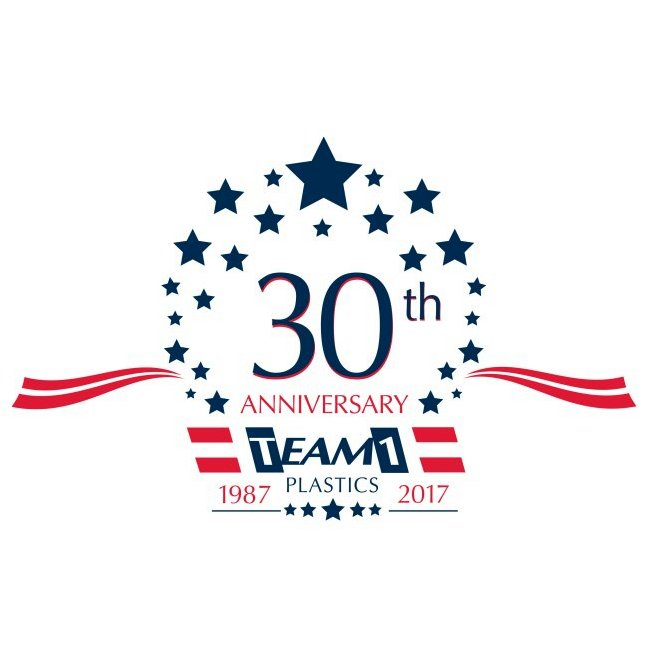A Look Back at the History of Team 1 Plastics
As part of the year-long celebration of its 30th anniversary, Team 1 Plastics, a plastic injection molding company for the automotive industry, is highlighting different milestones in its history through a series of articles. This month’s article features the impact that the March 2011 Japanese earthquake and tsunami had on Team 1 Plastics.
“On March 11, 2011, a magnitude-9 earthquake shook northeastern Japan, unleashing a savage tsunami. The effects of the great earthquake were felt around the world, from Norway’s fjords to Antarctica’s ice sheet,” wrote Becky Oskin in her article, “Japan Earthquake & Tsunami of 2011: Facts and Information” for livescience.com. Oskin was correct – the effects of the earthquake were felt around the world, including in the town of Albion, Michigan. No, the town didn’t feel the earthquake’s tremor nor experience the floodwaters of the tsunami nor the devastation of the loss of the lives of friends and family, but the impact of this natural disaster did significantly shake the financial stability of Team 1 Plastics.
Craig Carrel, President and Co-owner of Team 1 Plastics, said that he doesn’t remember exactly where he was when he learned about the earthquake and tsunami, but he does “…remember several business associates and friends reaching out to me when it first happened, knowing that we did so much business with the Japanese automotive OEMs (Original Equipment Manufacturers).” Even though Team 1 shipped very few parts directly to Japan, parts for the Japanese car manufacturers, Toyota and Honda, making automobiles in North America, represented about 65% of the company’s business in 2011.
“Initially no one knew the extent of the damage to the automotive supply base,” Carrel said, “but just looking at the devastation and destruction, you knew it was going to be bad. Entire companies along the coast were destroyed. It wiped away many key worldwide suppliers for Toyota and Honda. For example, a key computer chip manufacturer was completely wiped out.”
The loss of these key suppliers meant that when the OEM’s current part inventories ran out, production would be halted until the Japanese suppliers could rebuild and get back up and running. Once Toyota and Honda started shutting down their assembly plants, order for parts from Team 1 Plastics also stopped.
Carrel said that the 2011 Japanese earthquake and tsunami had a more adverse effect on Team 1 Plastics’ financial stability than the 2008-2009 recession. “During the recession, every customer’s orders were down. We would run the plant at full capacity to fill up inventories. Then, we would completely shut down for a few weeks while the inventory was depleted. Once the inventories were below a certain level, we would call all the Team Members back to work and run at full capacity again.”
The Japanese earthquake and tsunami were different. Carrel explained, “Even though we had no part orders from any of our Japanese customers, our American and European customers were up and running. In fact, they were able to see an increase in their sales because it was so difficult to buy a new Toyota or Honda. The American and European OEMs were able to cannibalize their sales when the Japanese OEMs were down.”
Unfortunately for Team 1 Plastics, the sales increase by the American and European customers did not make up for the loss of sales from the Japanese. Carrel said, “We had to keep running to fulfill the American and European OEM orders and could not shut down or lay off staff for periods of time.” Team 1 Plastics had been able to break even during the recession years, but it lost money in 2011 – due, almost entirely, to lost sales caused by the impact of the earthquake and tsunami.
Carrel said that the impact of the earthquake and tsunami caused “the automotive industry, in particular the Japanese, to make some significant changes to its supply base. For example, they do not want any key components to be made in only one region. And, to better understand their supply risk, the OEMs regularly survey their suppliers, including Team 1 Plastics, regarding our parts supply, and they review all other supply options.”
The impact of the earthquake and tsunami also caused changes at Team 1 Plastics. “It reinforced our goal to continue to diversify our customer base so that no Tier 1 customer or OEM is greater than 25% of our sales.”
Carrel explained that when Team 1 Plastics was started, the original target market was the Japanese automotive suppliers in Michigan. “Toyota and Honda have always been a significant part of our sales – more than 90% in our early history.” He added, “Before 2011, we had begun to diversify our sales efforts, but the Japanese OEMs still remained a significant part of our business. Since then, we have been successful in diversifying and no longer have any customer or OEM greater than 25%.”
So, yes, the earthquake and tsunami were felt around the world, including at Team 1 Plastics. But, as Carrel reminds us, “It was truly a tragic event that affected a country deeply with a tremendous loss of life and livelihood. Even though we struggled to adjust our business, our problems were so minor and insignificant compared to what the people of Japan experienced. We have a saying at Team 1, ‘It is important to know the difference between disappointment and tragedy.’ Our business problems and the loss of money in 2011 were only disappointing. True tragedy was experienced by the people of Japan in the path of this devastating earthquake and tsunami.”








Danielle Sheldon says:
Jeffery Carrel says:
Jeffery Carrel says: